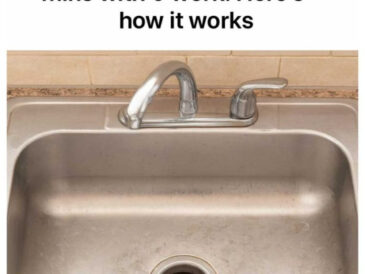Repelling Slugs and Snails
Slugs and snails are notorious for their appetite for tender plants, and they can quickly destroy seedlings and young plants. By placing potato peels around the base of your plants, you can create a barrier that discourages these pests from approaching. The rough texture of the peels makes it difficult for slugs and snails to move across, while the scent of the decomposing peels can further deter them.
Attracting Beneficial Insects
Potato peels can also attract beneficial insects like earthworms and predatory insects such as ladybugs and lacewings. Earthworms, in particular, are drawn to decomposing organic matter and can help aerate the soil, promoting healthier root systems. Ladybugs and lacewings are natural predators of aphids and other harmful insects, helping to reduce pest populations in your garden.
6. Potato Peels as a Moisture Retention Aid
In addition to improving soil structure, potato peels help retain moisture in the soil. This is particularly useful during hot weather or periods of drought, when consistent moisture levels are crucial for plant health.
By adding potato peels to your garden soil or using them as mulch, you can reduce water evaporation and ensure that your plants have access to the moisture they need to thrive. The organic matter in the peels helps the soil hold onto water, reducing the need for frequent watering and promoting a more sustainable gardening practice.
7. Enhancing Plant Growth with Potato Peel Tea
Potato peel tea is a simple and effective way to provide your plants with a nutrient boost. To make potato peel tea, simply soak fresh potato peels in water for several days, allowing the nutrients to leach into the liquid. The resulting tea can be used as a foliar spray or a soil drench to deliver essential nutrients directly to your plants.
Making Potato Peel Tea:
- Fill a container with water and add a handful of clean potato peels.
- Allow the mixture to sit for 2-3 days, stirring occasionally.
- Strain the liquid and apply it to your plants.
Potato peel tea is especially useful during critical growth stages, such as flowering and fruiting, when plants need a quick nutrient boost.
8. Potato Peels for Improving Seed Germination
Potato peels can also help improve seed germination by creating a nutrient-rich environment for seeds to sprout. When planting seeds, place a layer of potato peels in the planting hole or seed tray. As the peels decompose, they release valuable nutrients that support seedling growth and development.
This method can increase germination rates and lead to stronger, more vigorous seedlings. The nutrients in the potato peels give young plants a head start, helping them establish themselves more quickly.
9. Creating Mulch from Potato Peels for Weed Suppression
Another excellent use for potato peels in the garden is as mulch for weed suppression. When spread around the base of plants, the peels form a natural barrier that blocks sunlight and prevents weed seeds from germinating.
In addition to suppressing weeds, potato peel mulch helps retain soil moisture, regulate soil temperature, and add organic matter to the soil as it decomposes. Over time, the peels break down, enriching the soil and creating a more favorable environment for plant growth.
10. Using Potato Peels to Attract Beneficial Insects
The decomposition of potato peels creates a habitat for beneficial insects, including earthworms and predatory insects that help control pests in your garden. Earthworms, in particular, are attracted to potato peels and contribute to soil aeration and nutrient cycling.
By encouraging these beneficial insects, potato peels help create a balanced garden ecosystem, reducing the need for chemical pesticides and promoting plant health.
11. The Environmental Impact of Recycling Potato Peels
Recycling potato peels in the garden not only benefits your plants but also has a positive impact on the environment. By diverting potato peels from the landfill, you reduce the amount of organic waste that produces methane, a potent greenhouse gas.
Moreover, using potato peels in the garden reduces the need for synthetic fertilizers and pesticides, making gardening more eco-friendly. Recycling potato peels supports a sustainable gardening practice that benefits both your plants and the planet.
Conclusion: Transforming Waste into Garden Gold
Potato peels, often discarded as kitchen scraps, are a valuable resource for gardeners. By understanding their nutritional composition and using them in various ways, you can improve soil health, promote plant growth, and reduce waste. Whether you choose to compost potato peels, use them as a natural fertilizer, or employ them as a pest deterrent, these humble scraps can transform your garden into a thriving, healthy ecosystem. Embrace the power of potato peels, and turn what was once trash into garden gold.




